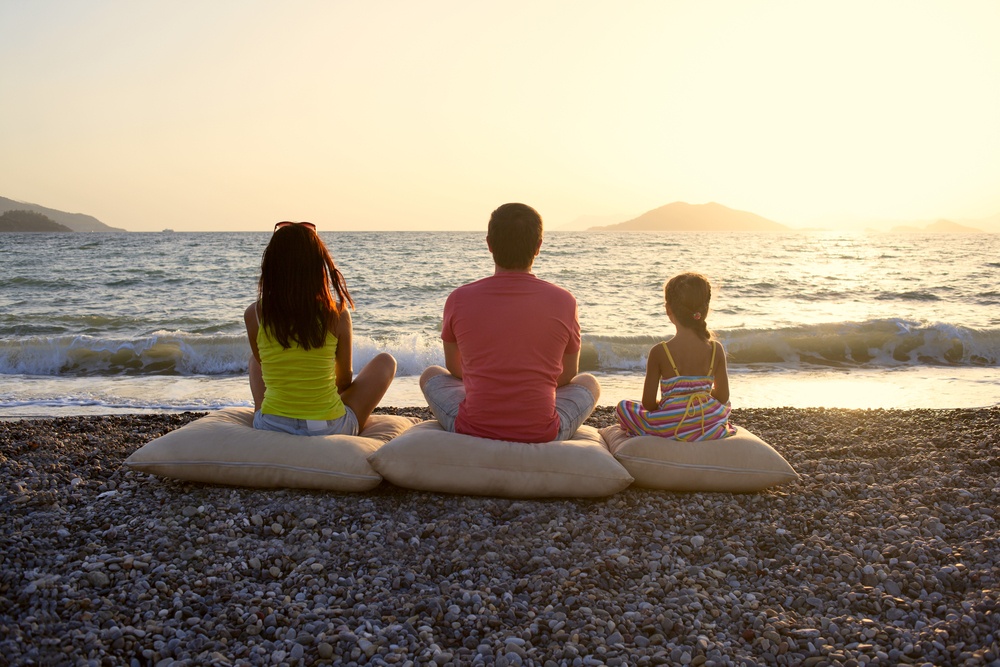Mindfulness In An Age Of Distractions
 Contributed by
Pamposh Dhar*
August 26, 2016
Contributed by
Pamposh Dhar*
August 26, 2016

Lately, there has been a real buzz around mindfulness. Corporate training seminars teach the benefits of mindfulness to working adults. Counsellors and child psychologists talk about the benefits of mindfulness training for kids in a world increasingly full of distractions from electronic gadgets and mobile connectivity.
In Singapore, as in the US and Europe, parents and teachers are coming to see how mindfulness could help children to set priorities, manage time better and focus on tasks. No one doubts that we all need to be mindful, but most people aren’t quite sure just exactly what mindfulness, and mindfulness training, means.
To me, mindfulness simply means living with awareness and attention, making informed and considered choices. In other words, making conscious choices. This requires focus, clarity of mind, and calmness.
The ancient practice of meditation is the oldest known method of mindfulness training. But, in our own times, there are other methods, with perhaps more limited objectives than meditation. Whereas the highest purpose of meditation is to help you understand yourself and life, the aim of mindfulness training may be focused more narrowly on developing calmness, clarity, and the ability to focus.
In an interview to the Shambhala Sun magazine a few years ago, Buddhist monk and author Thich Nhat Hanh described mindfulness as the opposite of forgetfulness. “Most people are forgetful, they are not really there a lot of the time,” he said. “Their mind is caught in their worries, their fears, their anger, and their regrets, and they are not mindful of being there in the present moment.”
Those who meditate regularly are already getting a good dose of mindfulness training – provided they are not just going through the motions but are meditating mindfully! Such practice does not just bring a sense of peace for a few hours – it makes you calmer and more focused as a person.
But there is an age for everything. Meditation is great for adults. I believe there is no adult alive who does not, or cannot, benefit from meditation. On the other hand, adults have had much longer than kids to get conditioned, stuck in their ways, and attached to their opinions. Meditation may be the easiest, least challenging way to start to change themselves.
Children and teenagers are less open to what can seem like the boredom of meditation and, at the same time, more open to new ideas and a new way of looking at things. They are ready to embrace programs that introduce new ideas in fun and innovative ways, encourage them to think for themselves, and engage their high energy and fresh minds. Mindfulness exercises, too, need to be interesting and fun – not like one more thing that an adult is “making” them do, but something they might quite like to try for themselves.
One thing that surprised me is how young kids of nine or ten are ready to try mindfulness exercises if these are presented to them as something new, rather than something boring that requires them to stay still for long periods. Teens and pre-teens like to know why they are being asked to try these exercises – or anything else for that matter. If they see the usefulness of the exercises, they are happy to learn them during the program and even to practise them on their own.
10-year-old Kartik Iyer said in his feedback after a mindfulness program that he had learned “how to focus, how to be calm, and to see and find value in people and things”.
This post was first published on India Se Magazine and has been reposted on Executive Lifestyle with the permission of the author.
Edited by Nedda Chaplin
Image credit: Happy family mum, dad and kid daughter sitting on cushion posing on the beach during sunset from Shutterstock










Sorry, the comment form is closed at this time.